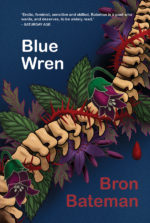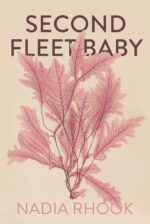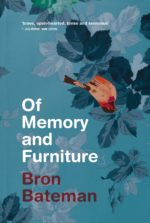Ties tense and tender: Six must-read contemporary Australian poetry collections about parenting and child-bearing
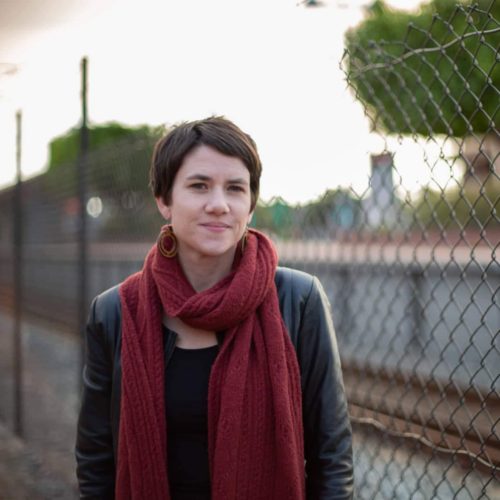
Nadia Rhook is a historian and poet, born in Naarm / Melbourne and currently living in Boorloo / Perth. Her new poetry collection examines birth and parenthood with a consciousness that spans centuries. Second Fleet Baby draws on the energies of 18th century English convict women, including her own ancestors, to open raw questions of belonging. In this piece Nadia shares the Australian poetry collections she believes are must-reads.
Elfie Shiosaki – Homecoming (Magabala Press, 2021)
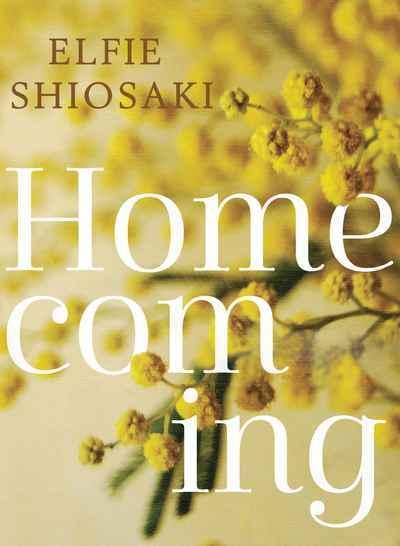
In the settler colonial nation called ‘Australia’, parenthood is a dense domain of love as well as of struggle. Homecoming carries its readers into this truth. Noongar and Yawuru poet and scholar Shiosaki draws on state archives and oral histories to witness intergenerational impacts of policies designed to separate Indigenous families in Western Australia. Often placed as a poetry collection, Homecoming sings above genre and other colonial boundaries. The ways in which Shiosaki’s ancestors fought to keep their families together reveal how tiny-hearted colonialism has been when compared with the wrenchingly big hearts shared in petitions, in letters, in the wrapping of blankets round Walyalup windswept newborns and various other strategies the poet’s ancestors wielded against the state. A collection awe-inspiringly underwritten by a method of care and renewal that shines in evocative prose and in the ‘unending love’ of First Nations parents for their children.
Eleanor Jackson – Gravidity and Parity (Vagabond Press, 2021)
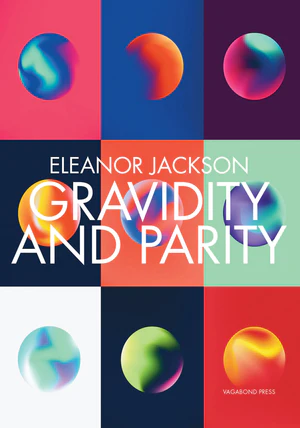
Threaded with the quotidian and punctuated with startlingly intelligent humour, Gravidity and Parity rises against the pressures involved of giving life to another. Here, parental responsibilities finds relief in surprising openings of meaning and perspective. The process where the body transmogrifies into a body that includes a foetus-turned-newborn is set against the disturbing conditions of the contemporary world, including the implications of fevers and teddy bears in windows during a pandemic, and of terrorist US Presidents. These are poems plumbed into the subterranean knowledge of the body, revealing the cellular workings of parental strength. In ‘Full Term’, ‘The terrain of failure may be vast, but we have crossed it’ (p.77) powerfully communicates the high stakes of child-bearing. As she writes elsewhere, to write of pregnancy is write of nothing less significant than ‘why and how … we want to live’.
Astrid Lorange – Labour and Other Poems (Cordite Press, 2020)
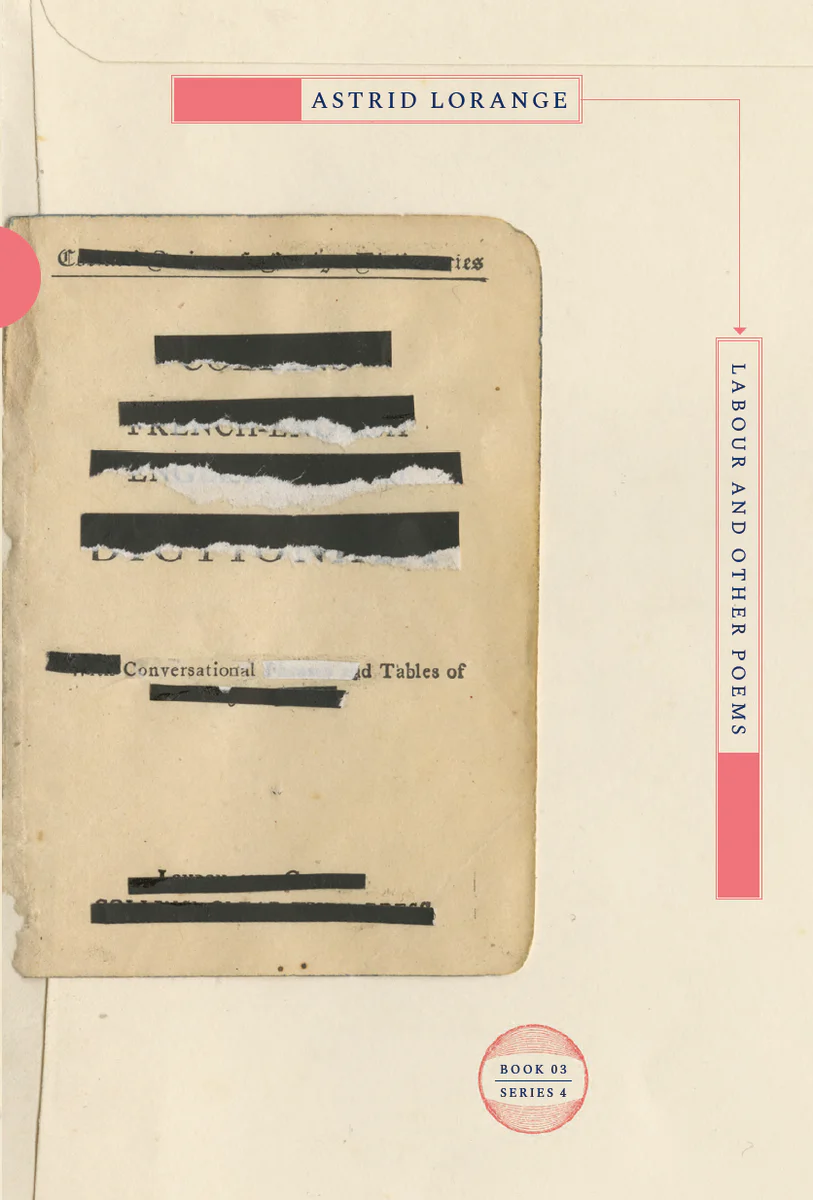
If you are, as I divulge to be, both a parent and an intellectual, or even if you crave a space to step back and abstract from the messy fleshy stuff of becoming parent and think more about the macro structural dynamics of ‘labour’, with all its capitalist and biological reproductive connotations, then this book is perfect. For me, this collection cut through depressing platitudes about ‘baby brains’ at a time when I craved an intellectual perspective to navigate the intense feelings that came from becoming a parent during a pandemic. Interested in relations between spies and friends and exes, as well as between parents and children and the state, Lorange asks fascinating questions about birth and matrescence, asking, ‘Where does birth end? When does the body recover from this transformation and giving over, if ever?’ Labour and Other Poems is a labour to be treasured for holding the intimacies of birth and becoming a mother no less close than the theories and knowledges one (re)turns to make sense of a ceaselessly political present.
Esther Ottaway – Intimate, delicate, low-voiced things (Puncher & Wattmann, 2021)
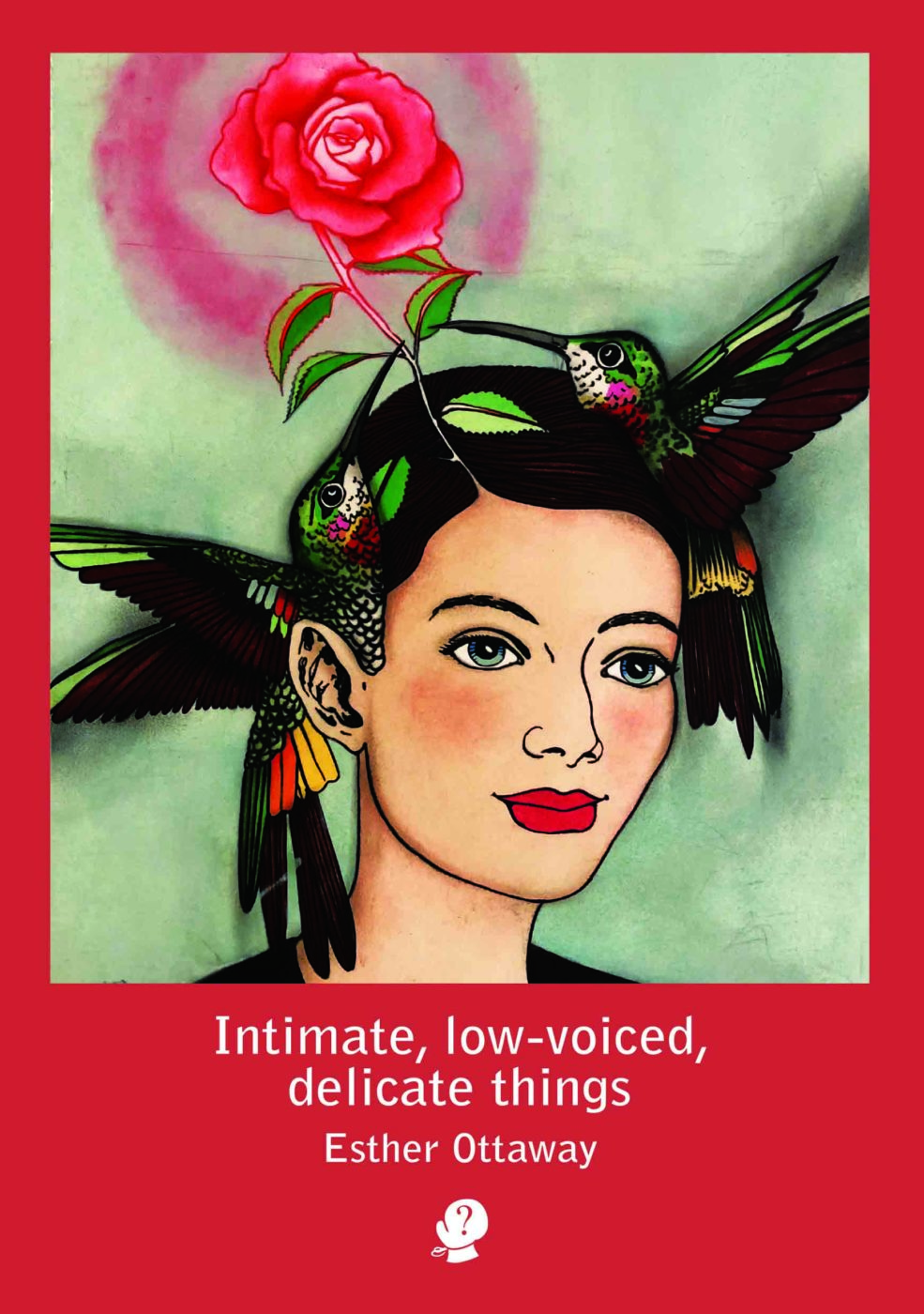
This captivatingly biographical collection is by no means only about parenting. Ottaway places parenting and relations between herself and her mother and daughter within the wide landscape of a life and its intimacies, knowing the poet to be both mother and expansively more than that. It was a huge relief to read another’s feeling of enduring hyper-vigilance, from the danger of the ‘oven, power points … three-pronged end of the vacuum cord’ (p.28) in ‘the way that each attentive parent knows’ (p.42). In tuning into the frequency of ‘low-voiced things’, the emotional terrain of parenting is shown to be one of attention to detail – to a child’s needs, to a parent’s fine-tuned control of actions and emotions, to worlds inside the mind and outside the door. This collection grants the reader permission to sit with the challenging reality that another life is dependent on you, and still finds a way to continue to breathe while knowing love can be a ‘misunderstanding’, that ‘the risk of life is death’ and still, there are reasons and ways to devote to another.
Bron Bateman – Blue Wren (Fremantle Press, 2022)
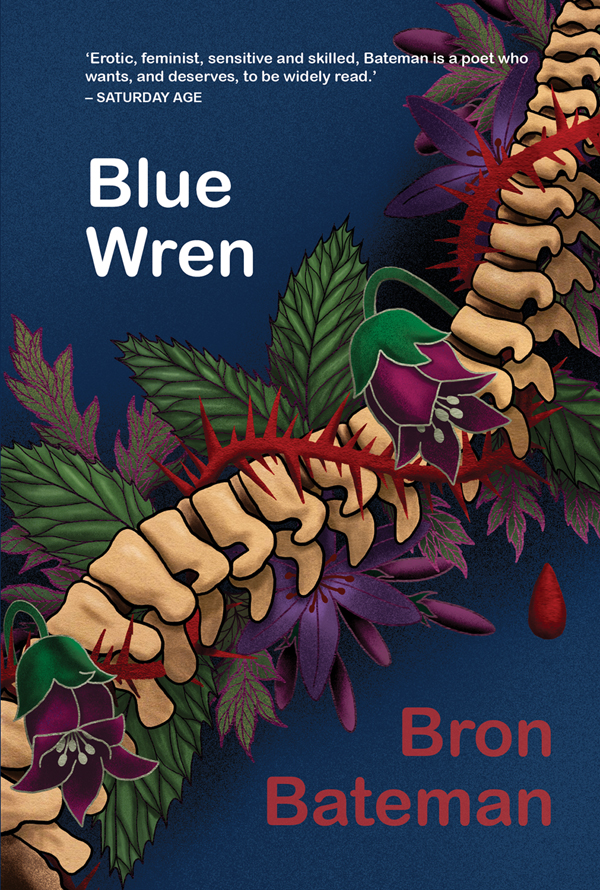
While it might risk a trope to speak of the depths of maternal strength, there’s nothing trope-ish about the forms of strength given voice in these sublimely honest and authentic poems, structured around the paintings of the late Mexican artist, Frida Kahlo. As in Of Memory and Furniture, Bateman makes space for a doting parent to live and breathe as a desiring and sexual subject, breaking stereotypes of the ‘good/bad’ mother. In its stories of Queer love and sex, and its ability to ‘wrestle flesh and feeling from words’, this collection seems to channel something of Audre Lorde’s ‘erotic mother’; ‘a figure or essence rather than a strictly literal person’ is a resource to herself, able to draw on her own creative ‘lifeforce’ (Lorde, ‘Uses’, 55). Blue Wren thrums with the sometimes awful, sometimes magnificent stuff of the body.
What We Carry: Poetry on Childbearing – (Recent Work Press, 2021)
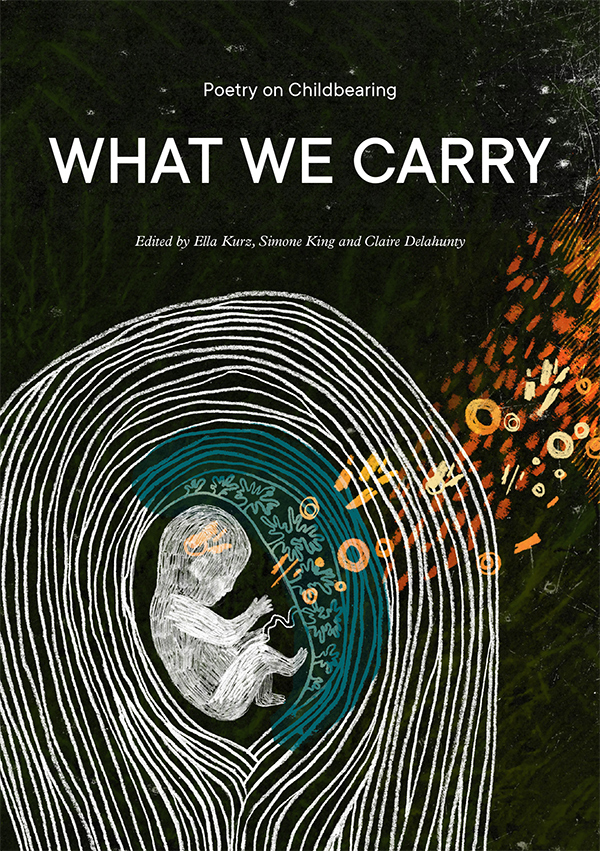
A remarkably packed anthology, What We Carry is premised on the understanding that publishing poems about child-bearing can be an act of feminist resistance. Editors, Ella Kurz, Simone King and Claire Delahunty argue for the significance of making space for a poetics of child-bearing in the introduction, recounting how in the 1970s acclaimed poet Sharon Olds was told that ‘the true subjects of poetry are … males subjects, not your children’ (p.7). The poems range from ‘tugs on life’ to ‘thawed promises’, and ‘warriors’ to ‘love and wonder’ and ‘unmaking’, honouring a contemporary cultural, ethnic, gendered and sexual diversity of experiences of parenthood. I feel I should disclose that I have poems in this anthology, and that this is one among many reasons why I adore it. Being included helped me to shift from apologising for writing so much about (in)fertility, IVF and becoming mother during a pandemic, to embracing the forms of power and knowledge and subject (re)creation that these experiences have offered me. Collectively, the poets show the capaciousness of poetry to convey deeply personal struggles with experiences of fertility, pregnancy, birth and parenting, as well as often misunderstood experiences of not being able or willing to become a parent.
All of these six collections offer languages of warmth and pain and courage and humour, and my gratitude for them is as personal as it is literary.



